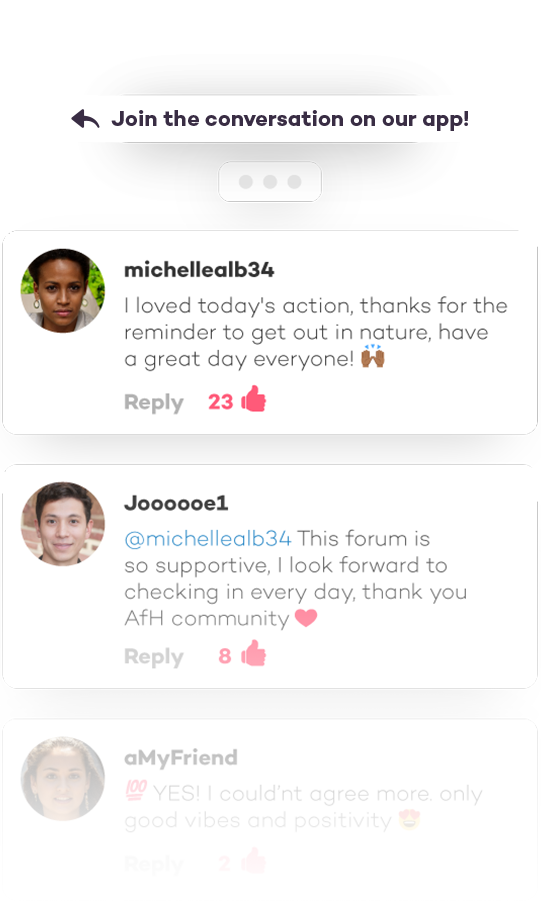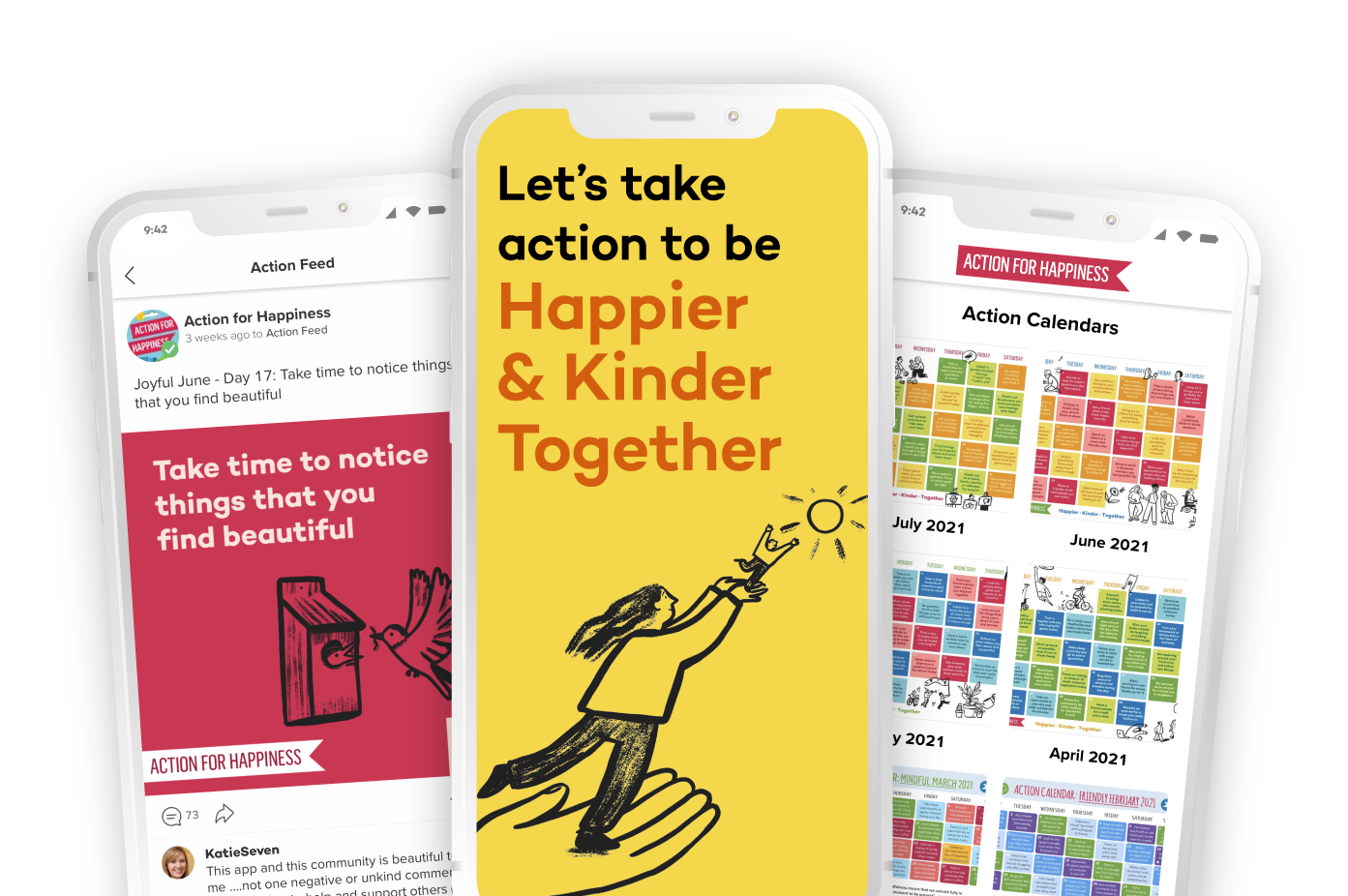Background
The World Happiness Report (WHR) is an annual UN-backed publication which produces a ranking of countries across the world in terms of the happiness of the citizens in those countries, based on self-reported data underpinned by the Gallup World Poll.
The 10th edition of the WHR was published on 18 March 2021. It finds that the 5 happiest countries are Finland, Denmark, Iceland, Switzerland and the Netherlands. The 5 least happy countries are Botswana, Rwanda, Zimbabwe, Lebanon and Afghanistan.
In order to review the happiness data in relation to the type of regime in each country we use the Democracy Index compiled by the Economist Intelligence Unit. This allows us to compare how average levels of happiness vary across the four categories of regime: Full democracy, Flawed democracy, Hybrid regime and Authoritarian (see below for detailed definitions).
Comparing Happiness and Democracy
The tables below show the 20 happiest and least happy countries from the World Happiness Report 2022 mapped against their associated Democracy Index score and regime type.
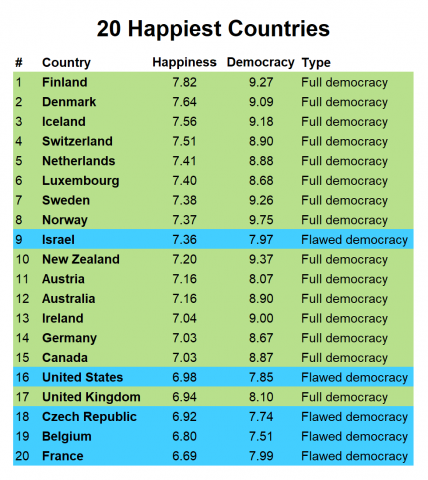
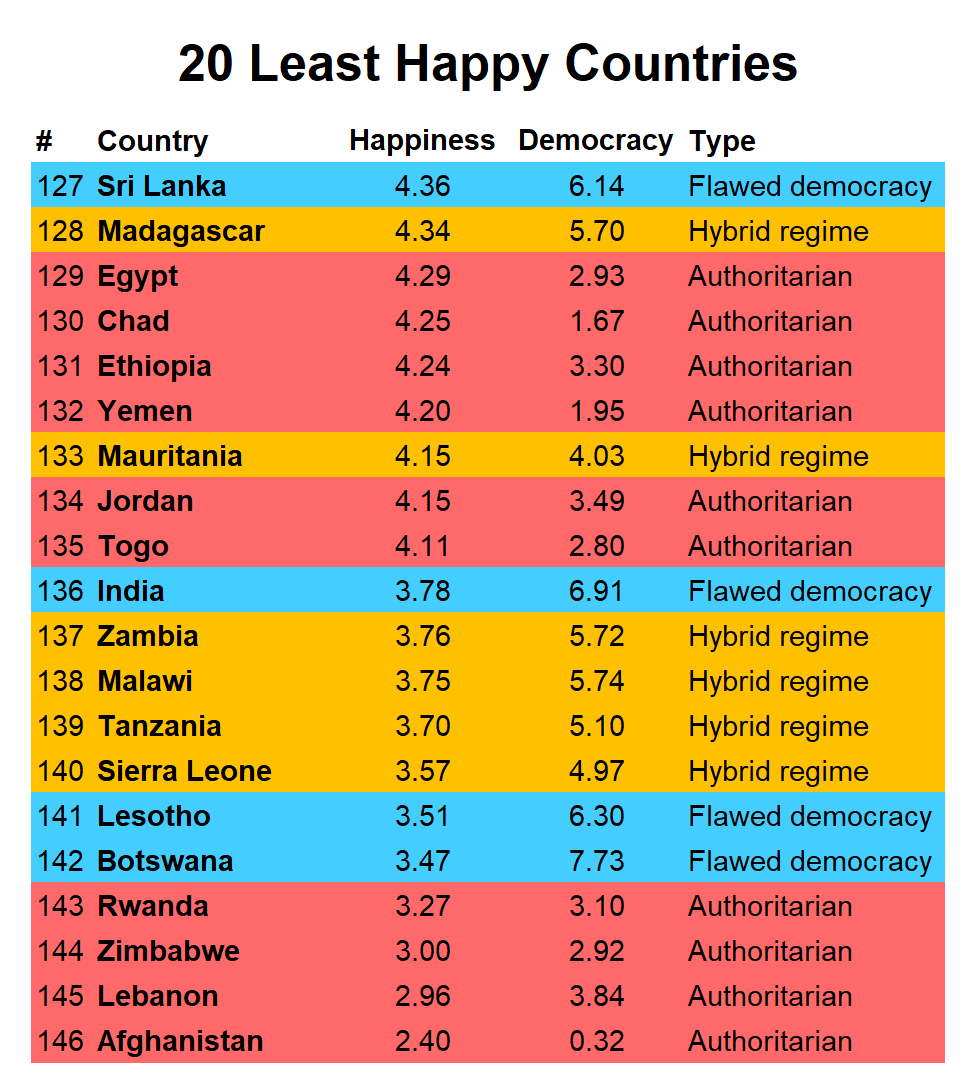
Figure 1 shows full scatter plot of all countries, with Democracy score (Democracy Index) on the horizontal axis and Happiness score (World Happiness Report) on the vertical axis. The plot is colour coded by regime type and a linear trendline is shown for the entire dataset.
Figure 1: Variation of Happiness With Democracy
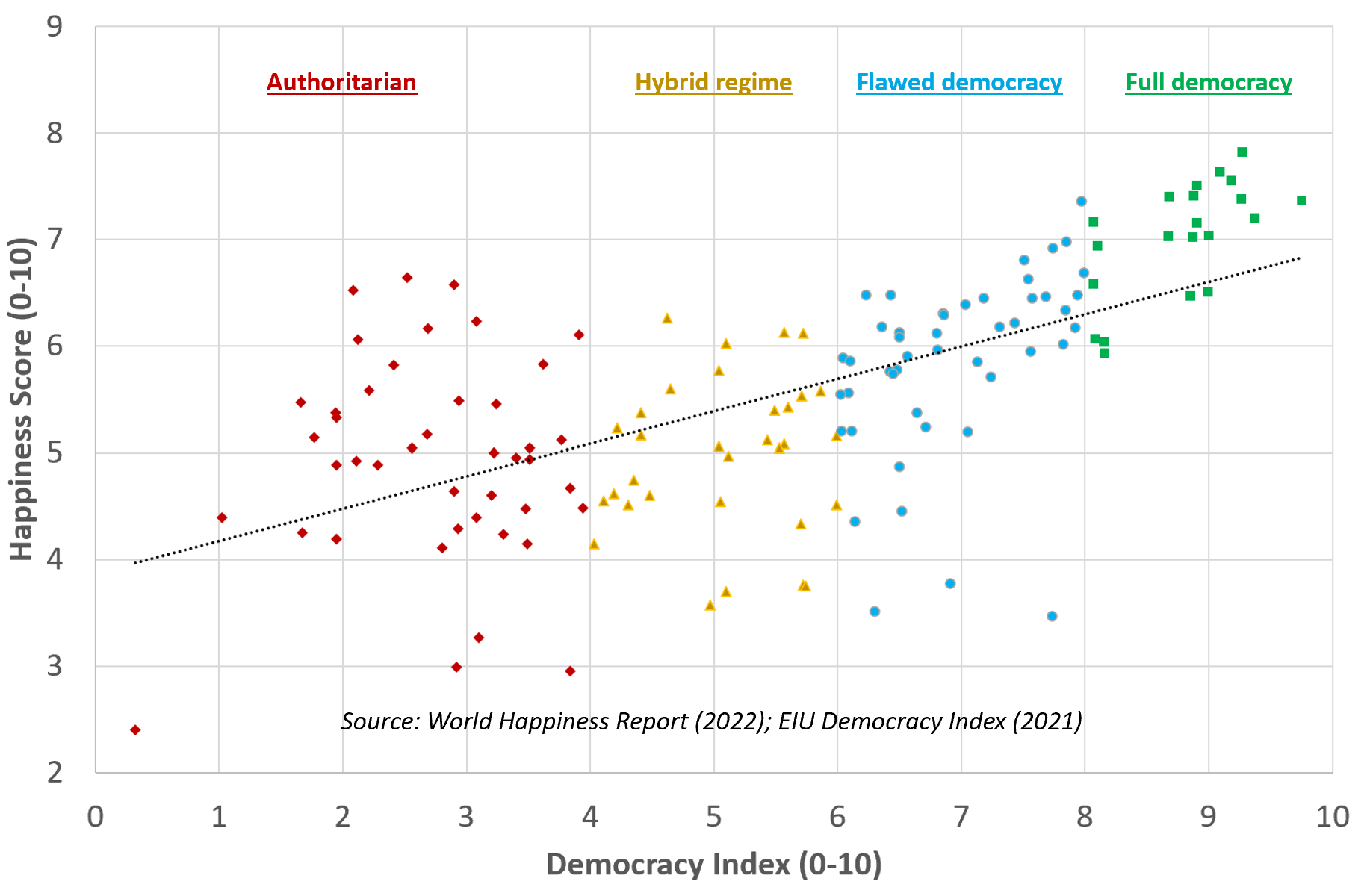
Figure 2 shows the average Happiness by regime type. This shows that, fully democratic countries have an average happiness score of over 7 out of 10 compared to a far lower average score of less than 5 out of 10 for authoritarian and other non-democratic regimes.
Figure 2: Average Happiness By Regime Type
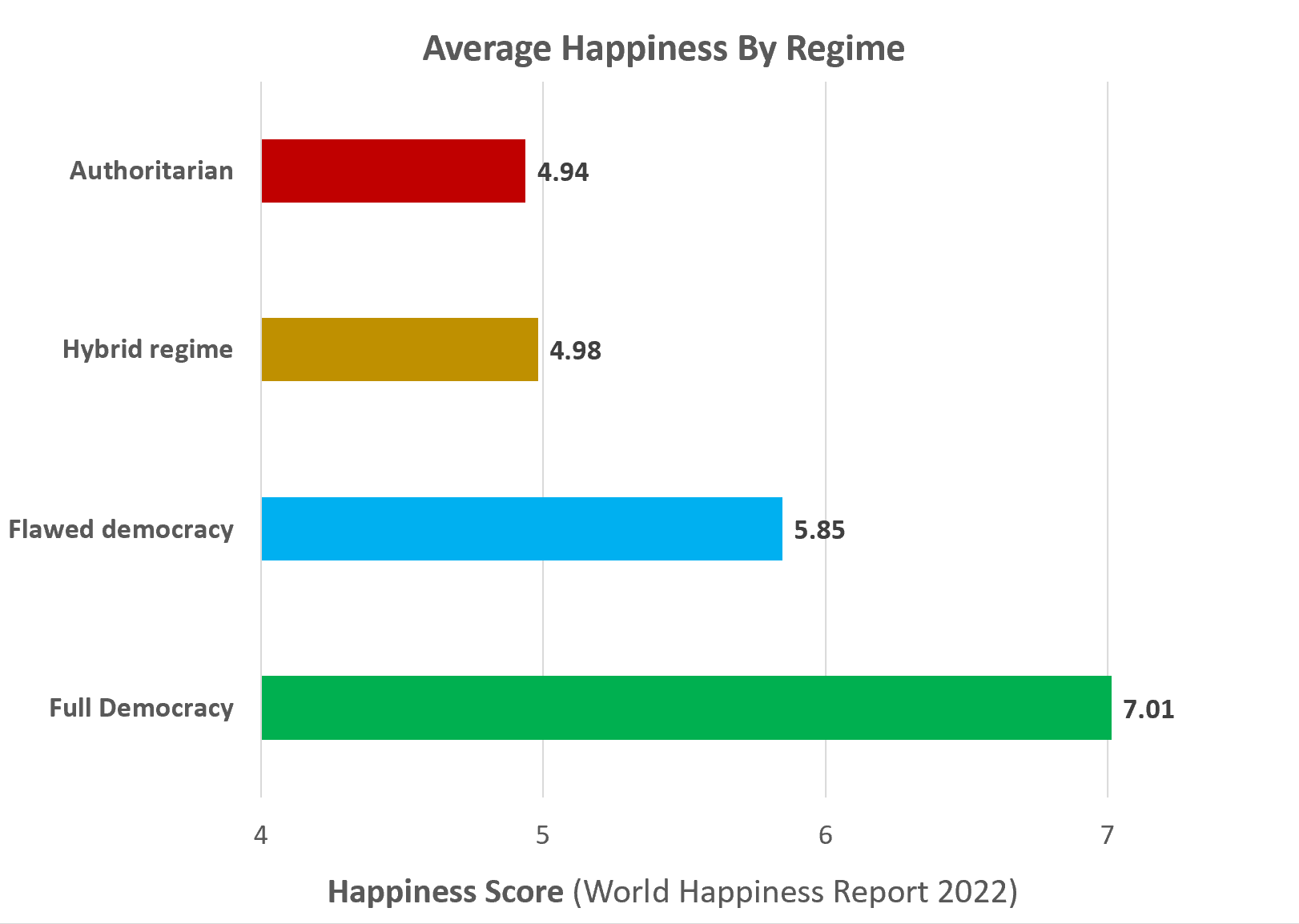
** UPDATE **
Note: this article was put together in 2022 using the latest data available at the time. You can find an updated comparison of happiness and democracy scores using more recent data (including the World Happiness Report 2024) here.
Types of Regime
The Economist Intelligence Unit classifies countries into four types of regime:
-
Full democracies are nations where civil liberties and fundamental political freedoms are not only respected but also reinforced by a political culture conducive to the thriving of democratic principles. These nations have a valid system of governmental checks and balances, an independent judiciary whose decisions are enforced, governments that function adequately, and diverse and independent media. These nations have only limited problems in democratic functioning.
-
Flawed democracies are nations where elections are fair and free and basic civil liberties are honoured but may have issues (e.g. media freedom infringement and minor suppression of political opposition and critics). These nations have significant faults in other democratic aspects, including underdeveloped political culture, low levels of participation in politics, and issues in the functioning of governance.
-
Hybrid regimes are nations with regular electoral frauds, preventing them from being fair and free democracies. These nations commonly have governments that apply pressure on political opposition, non-independent judiciaries, widespread corruption, harassment and pressure placed on the media, anaemic rule of law, and more pronounced faults than flawed democracies in the realms of underdeveloped political culture, low levels of participation in politics, and issues in the functioning of governance.
-
Authoritarian regimes are nations where political pluralism is nonexistent or severely limited. These nations are often absolute monarchies or dictatorships, may have some conventional institutions of democracy but with meagre significance, infringements and abuses of civil liberties are commonplace, elections (if they take place) are not fair or free (including sham elections), the media is often state-owned or controlled by groups associated with the ruling regime, the judiciary is not independent, and censorship and suppression of governmental criticism are commonplace.
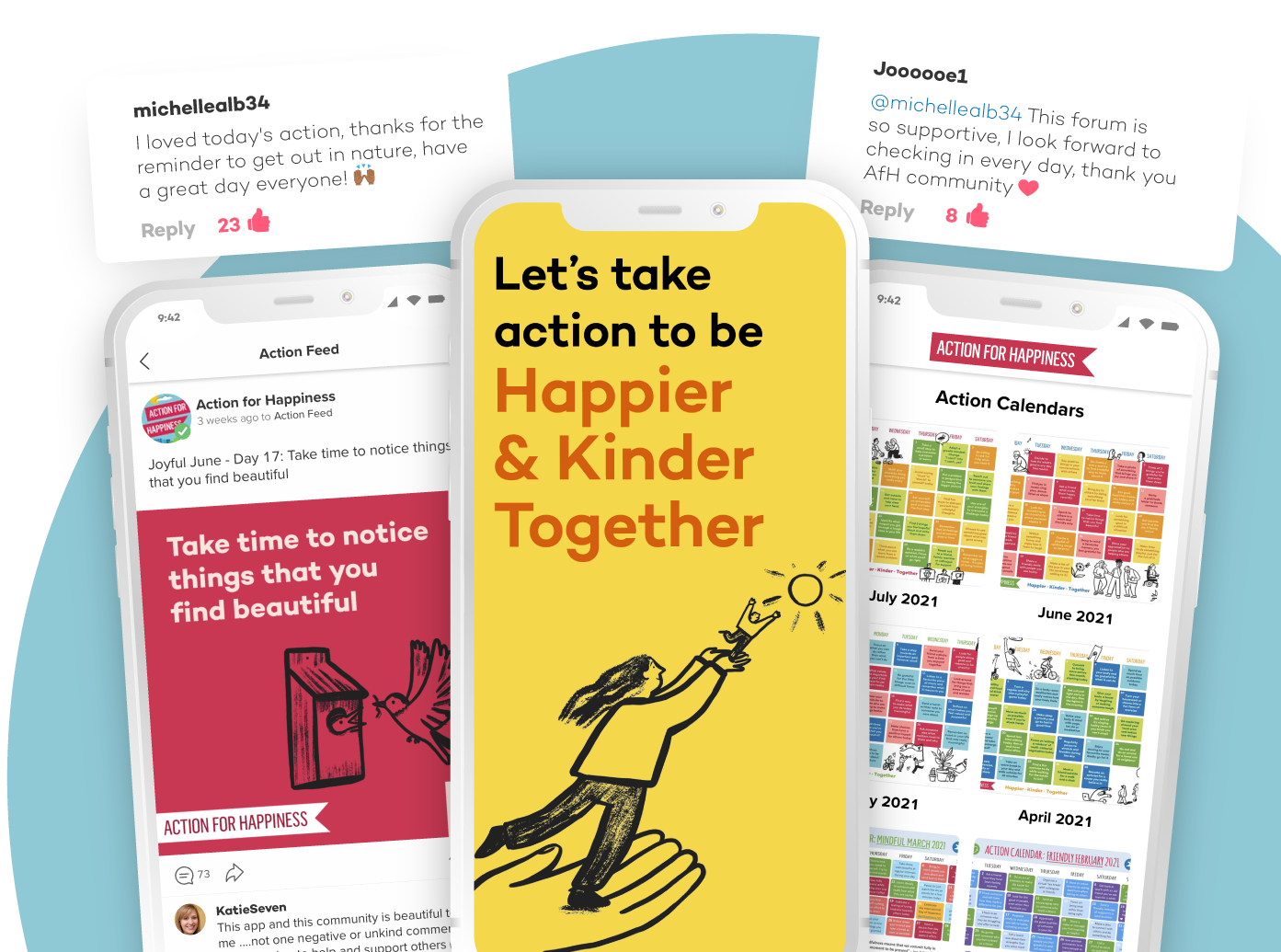
Download the FREE Action for Happiness app for iOS or Android
Gives you friendly nudges with an action idea each day Sends you inspiring messages to give you a boost Helps you connect & share ideas with like-minded people

